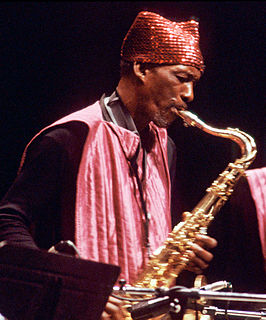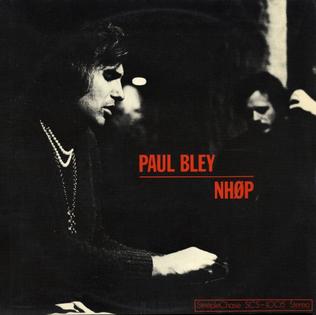
Paul Bley/NHØP is a jazz duet album by Paul Bley and Niels-Henning Ørsted Pedersen, released on SteepleChase Records in 1973. The album was recorded in Copenhagen, Denmark in June and July 1973, and primarily features Bley's compositions. Bley's performance here is more extroverted than on some of his other recordings.
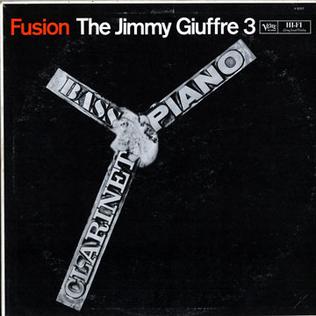
Fusion is a 1961 album by the Jimmy Giuffre 3.

Open, to Love is a jazz album by Paul Bley. It features Bley performing seven solo piano pieces and is considered not only one of his best albums, but a defining album in the history of the ECM record label. Three of the tracks were composed by ex-wife Carla Bley and another two by Bley's soon-to-be-ex-wife Annette Peacock. The album is one of the first showcases of the pointillism and silence that would inform much of his later work.

I Hate to Sing is a live album by American composer, bandleader and keyboardist Carla Bley recorded at the Great American Music Hall in 1981 combined with three tracks recorded at Grog Kill Studios in 1983 and released on the Watt/ECM label in 1984.
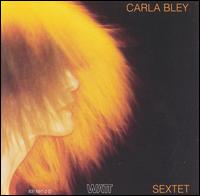
Sextet is an album by American composer, bandleader and keyboardist Carla Bley released on the Watt/ECM label in 1987.

Paul Bley with Gary Peacock is an album by Canadian jazz pianist Paul Bley with American bassist Gary Peacock recorded in 1963 and 1968 and released on the ECM label in 1970.

Fragments is an album by Canadian jazz pianist Paul Bley recorded in 1986 and released on the ECM label.
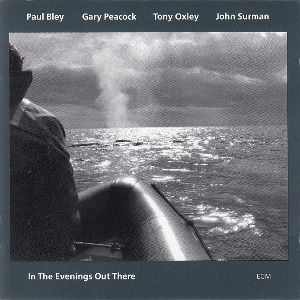
In the Evenings Out There is an album by pianist Paul Bley, bassist Gary Peacock, drummer Tony Oxley and saxophonist John Surman recorded in 1991 and released on the ECM label in 1993.
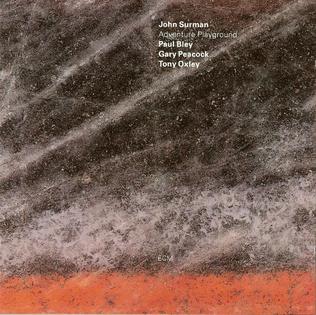
Adventure Playground is an album by English saxophonist John Surman featuring Paul Bley, Gary Peacock and Tony Oxley recorded in 1991 and released on the ECM label.
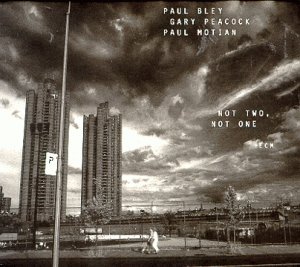
Not Two, Not One is an album by Canadian jazz pianist Paul Bley with American bassist Gary Peacock and drummer Paul Motian recorded in 1998 and released on the ECM label.

Solemn Meditation is the third album led by jazz pianist Paul Bley featuring tracks recorded in 1957 and released on the GNP Crescendo label.

Footloose! is the fourth album led by jazz pianist Paul Bley featuring tracks recorded in 1962 & 1963 and released on the Savoy label. Tracks from this album, along with alternate takes and addition material from the sessions, were later released as Syndrome and Floater.

Closer is the seventh album led by jazz pianist Paul Bley, featuring seven compositions by Carla Bley, recorded in 1965 and released on the ESP-Disk label.
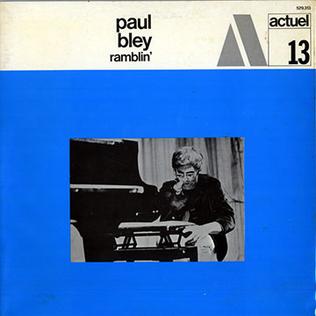
Ramblin' is an album led by jazz pianist Paul Bley recorded in Italy in 1966 and released on the French BYG Actuel label.

Mr. Joy is an album led by jazz pianist Paul Bley recorded in the studio and in concert in Seattle in 1968 and released on the Limelight label.

The Paul Bley Synthesizer Show is an album by Paul Bley performing compositions by Annette Peacock which was released on the Milestone label in 1971.

Dual Unity is a live album by Annette Peacock and Paul Bley which was released by Freedom Records in 1972.

Alone, Again is a solo piano album by Paul Bley, recorded in Norway in 1974 and released on Bley's own Improvising Artists label in 1975.

Questions is an album by pianist Paul Bley recorded in Denmark in 1985 and released on the SteepleChase label.

Partners is an album by pianist Paul Bley and bassist Gary Peacock recorded in New York in 1989 and released on the French Owl label in 1991.



